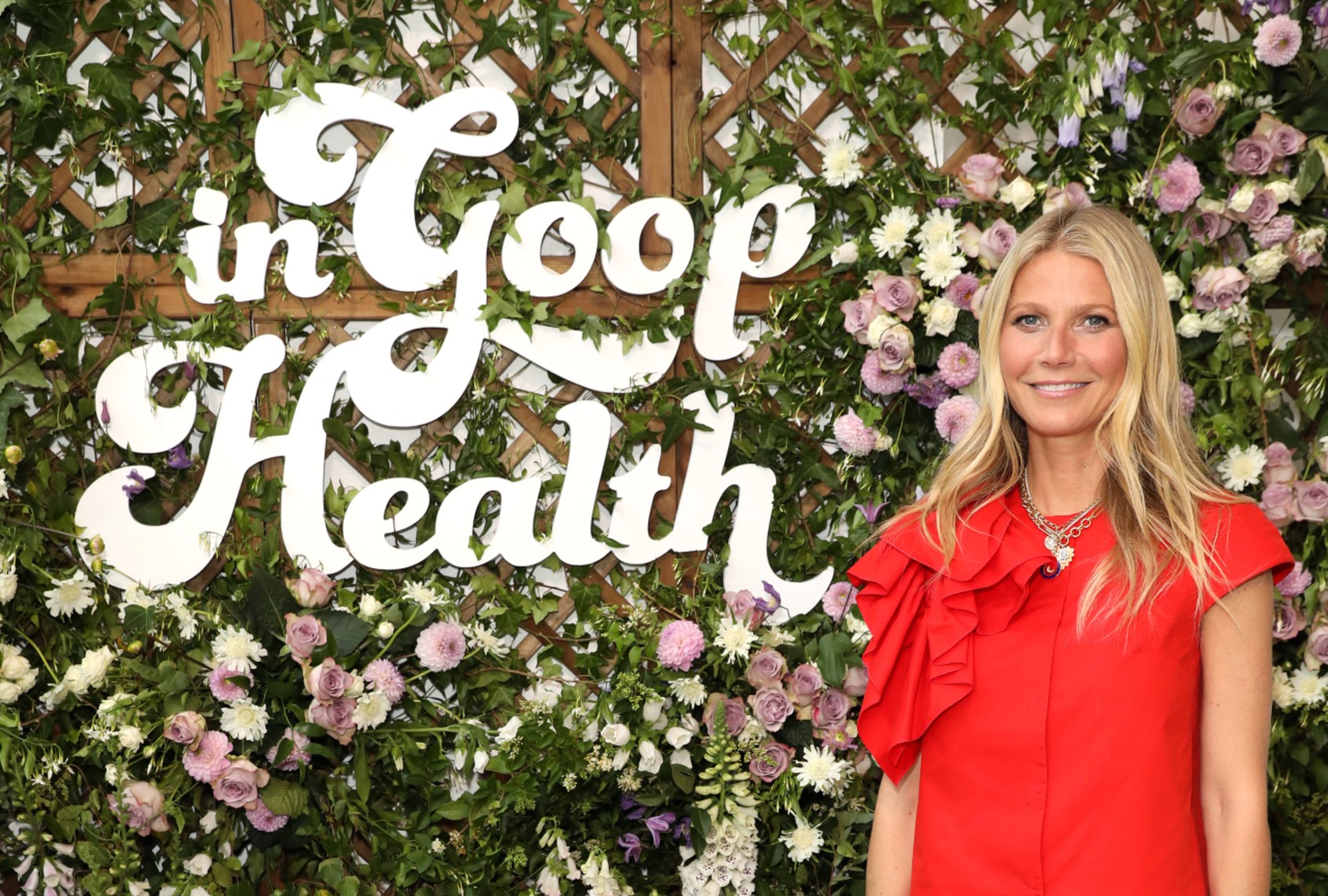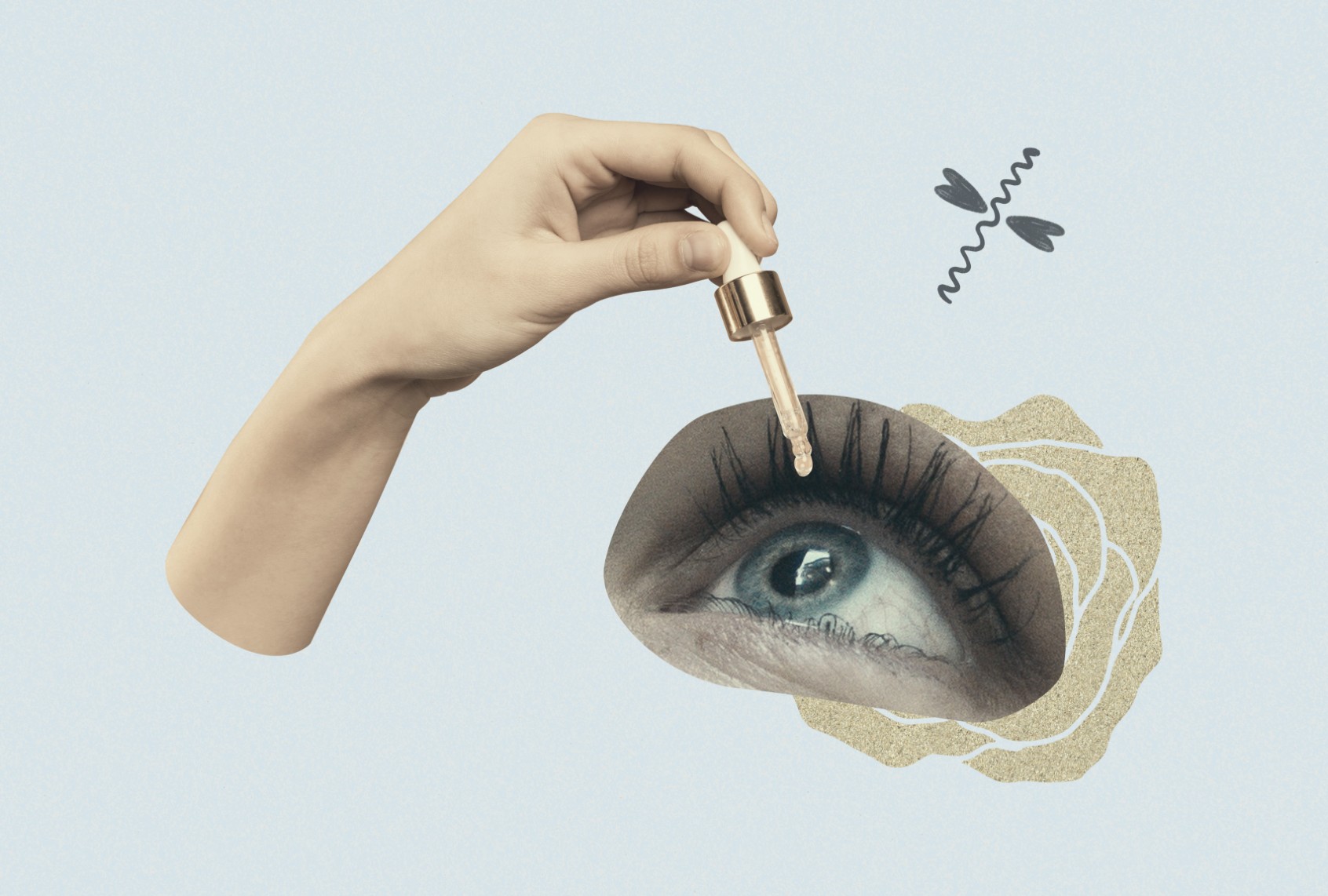“Skin-loving”
I know the makeup brand Jane Iredale didn’t always use this phrase in its marketing. I know this because I bought a few tubes of face gunk from her line in the early 2010s. It was expensive and the packaging design wasn’t great. Had the phrase “skin-loving” appeared anywhere on or near it, it would have been a three-strikes situation. But when I searched the brand online a short while back, there it was: “Clean, skin-loving mineral makeup and skincare,” front and center, right under the link to the site. I grimaced and clicked away.
It’s corny. It’s patronizing, even. I’m not a reflexively suspicious person, but “skin-loving” is trying to get away with something, and I don’t trust it.
But then I started seeing the phrase elsewhere, in the marketing and reviews of creams, lotions, sprays, blushes and more: A “nutrient-rich, skin-loving care for grumpy, dull, irritable skin” (Estee Lauder); “glow-enhancing makeup infused with skin-loving ingredients” (Pixi), a body and hair mist that’s both “skin-loving” and “mood-boosting” (Philosophy). Once Instagram clocks my investigation, it starts serving me sponsored posts from an Australian deodorant brand with “skin-loving formulation.”

(Darren Gerrish/WireImage/Getty Images) Gwyneth Paltrow
Sudden trend omnipresence happens all the time in health and beauty spaces: A study or two on the benefits of whatever gets written up in a general-interest publication, and days later, Sephora’s skincare section is full of bottles and tubes boasting about how full of Kakadu plum or hyaluronic acid they are. But those are specific ingredients; a phrase like “skin-loving” is harder to define without more information. It doesn’t state a targeted function like “redness-reducing” or “pore-blurring”; it doesn’t offer reassurance (like “noncomedogenic” or “nonabrasive”) of what it won’t do. It’s corny. It’s patronizing, even. I’m not a reflexively suspicious person, but “skin-loving” is trying to get away with something, and I don’t trust it.
So I turned to a few experts: writers who cover the beauty industry and have seen the full spectrum of cosmetic jargon, hype and empty promises. With their help, maybe I could understand what makes me a “skin-loving” hater.
Natural born
The first instance of “skin-loving” in beauty editorial I was able to find was in a 2021 Elle India piece titled “Make way for makeup with skin-loving ingredients.” Here, “skin-loving” is posed as a corrective to skin-smothering, with product recommendations for skin types. The products mentioned in the piece all contain at least one natural oil (mango, avocado) and something meant to soothe or balance (green tea, turmeric). The fact that these are derived from things we eat and drink offers a clue to what qualifies them as “skin-loving”: not only safe to consume but considered healthy.
But the idea that “natural” and “good for your skin” are one and the same is misleading, says Jane Daly, a Toronto-based beauty expert. Daly has long been skeptical of terms like “clean” that have proliferated as shorthand for “organic” or “nonchemical,” especially given the variability of oversight on labeling regulations. The disappearance of brick-and-mortar retailers, she worries, leaves consumers susceptible to influencers who appeal to their TikTok or Instagram viewers by espousing “natural” as an unquestioned good. “Essential oils are natural, but they don’t necessarily belong on your face,” she points out, recalling one experience with a face cleanser marketed as “clean.” “As soon as I put it on my face, I was like, Oh, that’s eucalyptus and menthol. Why would anybody put those in a cleanser? But” — and here she adopts a perky influencer voice — “It’s all natural!”
Clean brands, Daly notes, often hype up natural ingredients as better than those synthesized in labs. She recalls the years in which Bakuchial extract was marketed as a gentler alternative to retinol, the vitamin A derivative that’s the gold standard in antiaging ingredients. “It got traction because: natural. Eventually, some chemists and formulators [came] out and said that it’s not an alternative, it’s its own thing entirely.” That doesn’t mean it’s not effective, she adds, but it’s an example of how easily consumers can be misled when “natural” is assumed to be superior.
Not making any promises
Skincare as an industry has exploded in recent years — aided by Goopmother Gwyneth Paltrow, the subject of a new biography that tracks her rise from jaded, chain-smoking nepo baby to original wellness influencer — and with it, made buyers fluent in formulations and ingredients. I first took note of “skin-loving” as what seemed like an oddly vague appeal to a consumer base that tends to know its peptides from its ceramides at ever-younger ages. And maybe that’s the point: Perhaps we’re being told that we no longer need to worry our pretty little heads about what is or isn’t in our serums and sheet masks — all we really need to know is that our products love us.
Skincare as an industry has exploded in recent years — aided by Gwyneth Paltrow, the subject of a new biography that tracks her rise from jaded, chain-smoking nepo baby to original wellness influencer
“A lot of the time the wishy-washy language that we hear from brands is just [them] being creative about what they can and can’t say their products do,” says Jess DeFino, a beauty writer whose Substack, The Review of Beauty, is a go-to for feminist insight on cosmetics and beauty culture. The thing we all want to be told is what a product can do for us: Does it brighten? Tighten? How much will it change my life, and how soon? But despite products that play fast and loose with claims — for instance, marketing a night cream by highlighting a buzzy ingredient that it contains in minute quantities — there are legal limits to what each one can promise, says DeFino. “Skincare companies can’t say that their products [will] change your skin, because [changing] the skin on a cellular or biological level would make it a drug rather than a cosmetic.”
DeFino, like Daly, has seen an influencer-driven economy let the tail wag the dog. “The process to formulate a new product or get another step into [the] skin-care regimen you’re selling is sometimes years long,” she says. “Brands often look to the language that’s hitting on social media and ask, ‘Which of our existing products can we slot into this trend?’ And they’ll put it out there while there’s momentum. It’s an easy way to get recognition without having to formulate a new product.”
Sweetening up beauty standards
At some point in the past several decades, “the phrase ‘anti-aging’ got a bad rap,” says Val Monroe, the former beauty director at O: The Oprah Magazine and the voice behind Substack’s best-titled beauty dispatch, How Not To F*ck Up Your Face. “[At O], I never used it if I could avoid it. I wouldn’t say something makes you look older; I would say it makes you look ‘tired,’ or ‘raggedy.’ Anything to avoid attaching beauty to youthfulness.” This is a losing battle: Year after year, the market adopts a new set of terms — “dewy,” “glazed doll skin,” “glass skin” — so evocative it’s easy to forget they’re code for, “Don’t look old.”
Monroe wonders whether “skin-loving” is a kind of end-run around the language of looming female decrepitude. “It helps when it isn’t in your face constantly,” she says. “But, bottom line, what are people trying to do when they’re trying to, quote-unquote, improve their appearance? Look more youthful.”
Start your day with essential news from Salon.
Sign up for our free morning newsletter, Crash Course.
I’m reminded of Dove’s Real Beauty campaign, a multiyear advertising, research, and education initiative that began in the early 2000s and was the first attempt by a global brand to address the impact of imposing one beauty standard — white, thin, young — on half the world’s people. The idea was great, but the reality was that Dove was still in the business of selling products, and thus invested in keeping actual body acceptance just out of reach. “Skin-loving” has a similar feel, a tone that’s just at the edge of pandering: Wouldn’t it be great if we told you that you shouldn’t worry about looking wrinkled or blotchy? What if you weren’t being judged against an unattainable standard? Sorry, we can’t tell you any of that. But trust us, your skin will love our product.
Personifying self-care
The mainstreaming of wellness, DeFino notes, was the context in which the term “self-care”— a term originated by Black author and activist Audre Lorde, who saw it as an act of political resistance, of building strength to continue a lifelong fight — was co-opted by the marketplace. “Starting in 2016, right after the election, that’s when we saw this self-care language take hold in the beauty industry, and in skincare specifically,” she says. “Taking care of your skin is taking care of yourself was compelling messaging, and it worked. In 2017, the skincare industry had its biggest boom we’ve ever seen. That was in large part due to self-care language.”
Monroe goes further: “We anthropomorphize skin as though it’s a separate entity,” she says. “We treat skin as though it has the ability to love, or want to be pleased, or have emotions like happiness.” Companies will speak of skin “telling you what it likes,” influencers might urge you to take off your makeup so your skin can “breathe.” “We identify with our skin,” she says. “We relate to the idea of our skin breathing because we breathe, because it’s necessary for survival.”
DeFino thinks that, almost a decade since making “self-care” an umbrella term, “skin-loving” is the outcome of a “flattening” of self-care into skincare. “For a lot of people in the beauty space, that’s at the crux of it,” she says. “And it’s almost like the taboo [has] lifted a little bit. We can say, “This isn’t about yourself, it’s about your skin.”
Well, it’s better than skin-hating
Lab Muffin, the no-frills blog of Michelle Wong, an Australian cosmetic chemist, who breaks down ingredient lists, close-reads labels, debunks product myths and links to journal articles, was an early user of “skin-loving.” In a post from 2016, Wong uses the phrase “skin-loving” in the most obvious way, yet the one that hadn’t even crossed my mind: as another word for “gentle.” It’s a low bar that many products still don’t clear; as DeFino puts it, “The mission of the skincare industry is to destroy your skin as is and replace it with products.”
As someone who entered adolescence at a time when the majority of skin products aimed at the teen market seemed designed to punish your complexion, this tracks. We assaulted our faces with abrasive Buf-Puf sponges and attempted to gouge out blackheads with the sharp gravel of St. Ives apricot scrub; you knew Sea Breeze toner was working when you had windburn just standing at the bathroom sink. If you weren’t suffering, it wasn’t working. Kim Kardashian took this long-established trend to a new level recently, with her company Skims introducing a “Seamless Sculpt Face Wrap“ so Hannibal Lecter that Hannibal Lecter himself, Anthony Hopkins, spoofed it in a now viral video.
Anthony Hopkins tries Kim Kardashian’s latest face shapewear product.
— Film Updates (@FilmUpdates) August 1, 2025
“Product claims are usually [about] manipulating your skin into being something other than it is — younger, brighter, smoother,” DeFino says. “On a psychological level, it’s interesting to equate that with love. The romantic equivalent would be a partner who says they love you but also wants to change everything you are.” Which, I guess, means my hatred of “skin-loving” is just a relic of a time when epidermal hygiene was an abusive relationship.
Read more
about this topic


